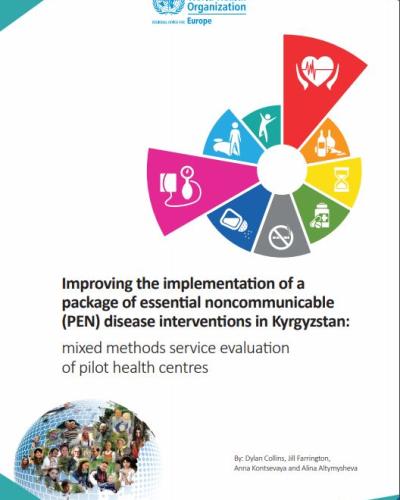Improving the implementation of a package of essential noncommunicable (PEN) disease interventions in Kyrgyzstan: mixed methods service evaluation of pilot health centres (2017)

WHO has defined a minimum set of essential NCD interventions to be implemented in primary health care (PHC) in low-resource settings in its package of essential noncommunicable (PEN) disease interventions. Kyrgyzstan has been piloting the implementation of PEN protocols since 2014. During late 2016, WHO carried out a quantitative evaluation of their implementation in family medical centres after 12 months. While it was possible to ascertain the costs incurred in implementation, it was not possible to demonstrate effectiveness. WHO followed up with this qualitative evaluation. An analysis of interviews with 30 PHC staff in five PEN pilot clinics revealed 11 exploratory themes indicating, for example, that clinicians were not confident or proficient in using risk prediction charts/scores and were not using risk stratification to inform management. This may be explained by lack of training, lack of time, lack of human resources, lack of supportive technologies and lack of patient materials.
These exploratory themes were integrated with the quantitative findings and potential areas for further exploration to improve the implementation of cardiovascular risk assessment and management in Kyrgyzstan. These include:
- adjustment of the training model;
- adaptation/redesign of the cardiovascular risk assessment pathway with supportive technologies;
- a systematic approach to identifying, recruiting and following up the target population; and
- support for PHC interventions with community and population interventions and communication campaigns to reinforce the message of prevention.





